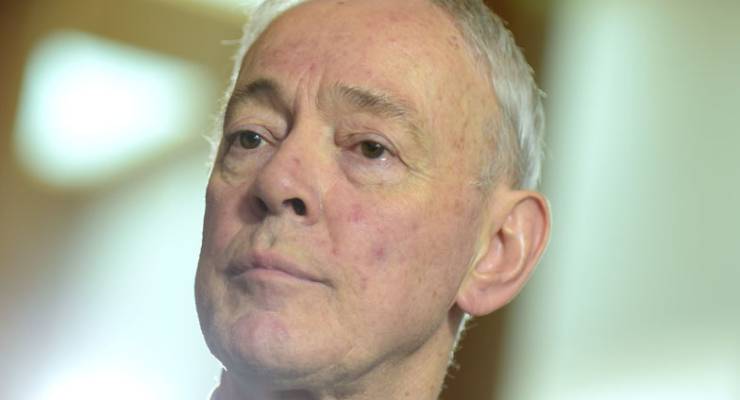
In the eight years he has been a member of Family First, Senator Bob Day has been the party’s largest — and often only — significant donor. His name has appeared next to hundreds of thousands of dollars worth of donations and other payments, totally eclipsing all other donors, and given a run for his money only by the Australian Electoral Commission.
Day yesterday announced he would resign from politics after his building company went into liquidation. Day told media on Monday that he would stand down from the Senate to devote himself to sorting out the mess, including by selling off his own family home.
The party today downplayed the impact of Day’s departure. “No individual is bigger than the party and we simply have to pick ourselves up and soldier on,” said Family First’s SA leader, Dennis Hood. But although Family First wasn’t founded by Day and hasn’t relied on his personal popularity for support, it has, however, come to rely on his personal fortune.
Day came to Family First through the Liberal Party. He had been a Liberal member for more than two decades — and ran in the 2007 election for the Liberals — before resigning in 2008 in protest at not being preselected for Alexander Downers’s just-vacated seat of Mayo. Day said the preselection process had been “manipulated” to “to ensure the preselection of one particular candidate”. Day ran for the seat with Family First instead, though he was defeated by Jamie Briggs, who went on to hold the seat for two elections before being defeated by a Xenophon-aligned independent this year. If Day’s straitened financial circumstances lead to a curtailment of his financial contributions — and one would expect they will — it will be a major financial blow to the minor party he joined in protest.
In the 2014-15 financial year, Bob Day’s family trust made a donation of $73,200 to Family First, which was 84.3% of the party’s total income that year. The year before — an election year — he donated $483,000 to the party. Another significant donation that year ($360,000) came from entrepreneur Ashley Fenn, who resigned from the party’s executive last year over what The Australian called “clashes over policy” with Day. The previous year, Day sent $381,775 the party’s way — that exchange, which was 77.9% of the party’s total revenue, is not technically classed as a donation. Day has previously declined to indicate exactly what it comprised.

Source: AEC political party returns by related party grouping
Many of Day’s contributions to Family First were not declared to the Australian Election Commission as donations but as “other receipts”, which is a term used to denote a payment for services rendered. Often, however, these effectively function as donations — they can signify payments for buying seats at fundraisers, for example — or they can be payments for property transactions or other goods and services.
The NSW Greens have closely examined Day’s contributions, and they point out that Family First’s 2011 and 2012 returns show Day as a significant creditor to the party — in 2012-13, it owed him $1.47 million. The 2013-14 return shows Family First paid him back $1.19 million — the Greens query what happened to the other $275,000. Many others have raised concerns about the fact that as Day’s companies went belly-up — more than 200 home owners whose homes are currently being built are affected — he was putting large amounts of money into his political endeavours. Home owners have been left with uncompleted homes as a result of the liquidation, while contractors are still waiting on payment.
Day has never appeared on the BRW Rich List, but he was one of South Australia’s wealthiest entrepreneurs. His national building empire meant when he ran in 2007, the media speculated he was likely far wealthier than the man usually dubbed Australia’s wealthiest parliamentarian, Prime Minister Malcolm Turnbull.
Day’s statement on his resignation said he had always been happy to put himself as a personal creditor to his business ventures. The liquidation, he said, “has serious implications for me and my family. Creditor liabilities greatly exceed our assets so we will also lose our family home.”
Family First was founded in South Australia in 2001 and had a representative elected to the South Australian upper house the following year with a 4.02% primary vote. It has maintained a steady but small presence in the South Australian Parliament ever since, often filled by ex-Liberal politicians like Robert Brokenshire.
Liberal-National preferences gave Family First a leg up to the federal level in 2004; Stephen Fielding was elected on just 1.76% of the primary vote and a whole lot of preferences from minor parties. When his term finished, the party lost federal representation, until regaining it with Day in South Australia — he was elected to the Senate in 2013 with a 3.76% primary vote, which swelled to quota through preferences. Many expected that Day wouldn’t regain his seat after the abolition of group voting tickets in this year’s election, which he opposed all the way to the High Court. A debate at the SA Press Club did not even invite him or anyone from Family First. Day scraped in with a 2.34% primary vote in the double dissolution election.








Who will he be replaced by, another Family First rep?
Yep. His chief of staff Rikki Lambert has put his hand up – could be contested though.
Reminds me of what happened to Clive Palmer.
Yet another right wing believer in “capitalism red in tooth & claw” who can’t run a chook raffle, like the Hayekian Henry Ergas and that big bloke from the Gold Coast, forgotten his name… thankfully, who stripped companies for his political ploys.
From a Greens voter to Family First supporters – tomorrow is another Day.